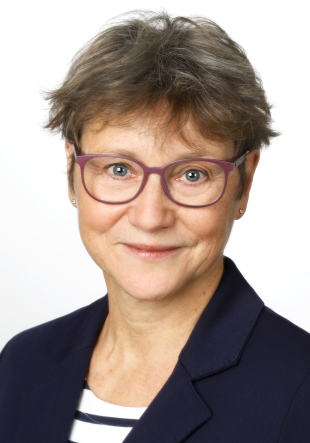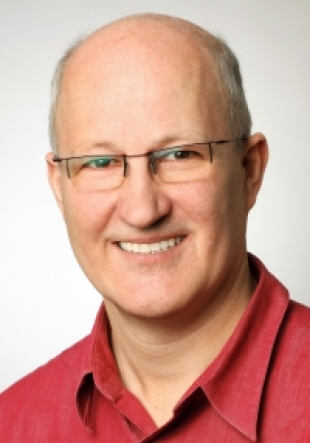studiolo communis: a co-active working environment for an extended research discourse in the history of art and architecture
Overview
In the interdisciplinary research project "studiolo communis", a working environment was developed based on the studiolo of the Renaissance - a room for study and contemplation equipped with works of art, study objects and books - which supports the examination, comparison, evaluation, linking and commenting of media objects and research results.
For this purpose, images from an image database can be integrated - in Paderborn the database easyDB is used for the "Image Archive of the UNESCO Competence Centre". But also other media objects such as text, sound and film recordings can be integrated. Here the metaphor of cooperative knowledge spaces is implemented, where media objects can be created, edited and arranged in a cooperative way (communicative, cooperative and collaborative).
The cooperative working environment is integrated into the infrastructure of the university and has interfaces to technical systems (authentication, communication, data backup, ...) as well as to other research-relevant systems (document and literature management).
The IMT was responsible for the project management, in particular meetings and the final conference were organized. In addition to the basic infrastructure, the IMT operates the Paderborn image database and the collaboration platform SharePoint, which was introduced within the project. In the project, IMT defined and managed the interfaces between the systems.
Project funding: The project "studiolo communis - building a co-active working environment for an extended research discourse in the history of art and architecture in support of the UNESCO Centre of Excellence 'Material and Immaterial Cultural Heritage'" was funded by the German Research Foundation (DFG) as part of the programme "Scientific Library Services and Information Systems (LIS)".
Employees at the IMT: Andreas Brennecke, Alexander Strothmann
Other project participants: Prof. Dr. Eva-Maria Seng, Professorship for Material and Immaterial Cultural Heritage UNESCO, Prof. Dr. Reinhard Keil, Professorship "Informatics and Society" at the Heinz Nixdorf Institute
Project leadership:
Prof. Dr. Eva-Maria Seng, Professorship for Material and Immaterial Cultural Heritage UNESCO
Prof. Dr. Reinhard Keil, Professorship ?Computer Science and Society" at the Heinz Nixdorf Institute
Dr. Gudrun Oevel, head of the Information and Media Technologies Center (IMT)
Project management:
Andreas Brennecke
Information and Media Technologies Center (IMT)
Project team:
Doris Hartmann, UNESCO Competence Centre
Carolin Mischer, Chair of Material and Immaterial Cultural Heritage UNESCO
Heiko N?then, Information and Media Technologies Center (IMT)
Andreas Oberhoff, Chair of Computer Science and Society
Jonas Schulte, Chair of Computer Science and Society
Alexander Strothmann, Information and Media Technologies Center (IMT)
Funding source: DFG (www.dfg.de)
Programme: Scientific literature supply and information systems (LIS) (www.dfg.de/foerderung/programme/infrastruktur/lis/index.html)
Funding reference number: INST 214/56-1 and OE 499/1-2
Key Facts
- Grant Number:
- INST 214/56-1 OE 499/1-2
- Project type:
- Forschung
- Project duration:
- 06/2010 - 09/2013
- Funded by:
- Deutsche Forschungsgemeinschaft (DFG)
More Information
Results
Reports: Final report of the project: studiolo communis – ?Aufbau einer ko-aktiven Arbeitsumgebung für einen erweiterten Forschungsdiskurs in der Kunst- und Architekturgeschichte zur Unterstützung des UNESCO Kompetenzzentrums ?Materielles und Immaterielles Kulturerbe‘“ (INST 214/56-1, OE 499/1-2) Reporting period June 2010 - September 2013 Final publication still to be published: Keil, R., Oevel, G., Seng, E.-M. (Hrsg.): Studiolo. Kooperative Forschungsumgebungen in den eHumanities. Berlin / New York: de Gruyter 2015 Publications: Andreas Brennecke, Gudrun Oevel, Alexander Strothmann: Vom studiolo zur virtuellen Forschungsumgebung. In (Müller, P., Neumair, B., Dreo Rodosek, G. Hrsg.): 4. DFN-Forum Kommunikationstechnologien, Beitr?ge der Fachtagung. GI-Edition - Lecture Notes in Informatics, K?llen Verlag, Bonn, 2011; S. 69-78 Reinhard Keil, Jonas Schulte, Andreas Oberhoff: Unterstützung des ko-aktiven Forschungsdiskurses durch Synergien zwischen E-Learning und E-Science. In (K?hler, T., Neumann, J. Hrsg.): Wissensgemeinschaften – Digitale Medien – ?ffnung und Offenheit in Forschung und Lehre. Waxmann: Münster 2011, S. 81-91







